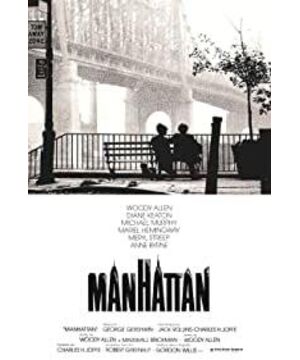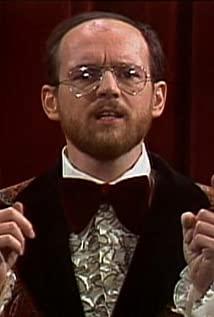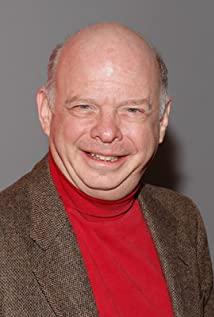The incident was caused by a gossip in a vegetable market.
A close friend A, who works in the headquarters of a Fortune 500 company in Beijing, sent me a WeChat message:
"I broke down. Gao and Pei got married a few months ago, and I was the last to know..."
Both of them are colleagues in different departments of A. Gao has been married for many years, and he is reluctant to publicize his second marriage after cheating. There are no wedding photos in the circle of friends, and he did not make a sound on his honeymoon. What puzzled her was that Pei Mou, a eldest girl from Beijing, had a good family background, and she spent her vacations abroad. Her consumption level was at the top of Intime. Her previous boyfriends were all high-ranking elites, and for some unknown reason, they ended up becoming ordinary white-collar workers. The third child, also married as a wife.
In addition to the surprise, A recalled that she and a colleague in the department cheated on the company goddess during the wife's pregnancy, and also ended in the marriage of the male protagonist's junior third.
At present, all anonymous female voices are always questioning the wives who lack the right to speak in the story. Women who play a central role in the family have paid more explicit and implicit efforts than men. This is not uncommon in modern society. In a widowed marriage, women not only support their families, but also support the sky outside, working 9 to 5 for a salary that has been subjected to male scorn, discrimination, and sexual harassment. However, after men choose to cheat and divorce, women are abandoned by their families overnight. The marriage system is not perfect, the law enforcement is unfair, and they cannot even obtain any favorable protection and position in society.
In 2018, it seems that all young girls are afraid of marriage, and all new wives are afraid of childbirth, do we really need marriage?
Looking back on Manhattan in 1979, marriage was the most insignificant proposition.
Yell and Emily went through a long DINK life, when Eck told Emily about her husband's affair with Mary, Emily said: "I've known for a long time that Yell was having an affair, nothing is perfect, I Thinking about marriage - some small compromises need to be made.
Mary and Eke discussed her affair with her petite, petite ex-husband. Eke couldn't even understand her admiration for her ex-husband. She said she knew about her husband's affair at least once, but she added: I never mention it because in I am also flawed in some ways.
As she flirts with Yell, she says emphatically: I can't—I'm starting to say what those women said, I don't want you to do it, I don't want to ruin a marriage yet.
Ek, who was willing to divorce for his marriage, believed in puritanical principles of self-control, but Jill left him for a new lesbian love affair, and she explained the reasons for their split: he was cynical, megalomaniac, and obsessed with death. Their marriage ended because they couldn't stand each other anymore, not a mediocre life without passion.
Manhattan is likable, and even though the marriage described in Woody Allen's mirror is full of deceit, cheating, and betrayal, it is always kind and frank, self-examination, and prudence.
The parties to the marriage relationship made a compromise in order to preserve the marriage itself, and this compromise allowed the people in the puzzle to escape the moral dilemma because they were no longer cynical, they succumbed to human nature, and enjoyed human nature. Instead of jumping from one "true love" to another, they'll love the next indefinitely, but at least they can honestly admit that they're in the middle of a love anecdote.
The pedantic ugliness of intellectuals is annoying, but they are actually inferior, looking directly at themselves sharply, dissecting and clearly recognizing their fragility, capriciousness, cowardice and incompetence, they understand society, understand human nature, and understand all love Doom to come.
It is this ability that makes the Marie of the Yers so cute. They always have an inseparable affection for their husband or wife (family affection, admiration), but they will also love people deeply, vent their desires, and keep their own bottom lines.
They have chosen to accept themselves, have fun in a timely manner, and learn to maintain the demeanor that marriage should have in the face of true emotions. While repenting and forgiving to their families, they indulge with their lovers. This is by no means admonishing the virtue of patience in marriage, but preserving people just right. The private gray space that many people deserve, even if they don't want to admit it—they need it and have a right to it.
The Manhattan marriage was shut down by Woody Allen, and we were relieved of our anger, freed from restraint, and freed to talk about the simple parts of human nature: love, passion, and desire: Yael and Mary's hard-to-find love, Mary's love for Eke's betrayal, and Eke's remorse for Tracy, is not a tasteless self-recovery.
On the other hand, when I look at the modern society where the confounding situation of the minor three and the accusations of cheating are intensifying, what really puzzles me is that people with identity, knowledge and status such as Gao and Pei have fallen into what kind of puzzle they want to be. Moving on to the next marriage and thinking this is the end? Is the marriage between Gao and his wife really dead, or is it out of a philistine business comparison, just giving up for a seemingly better intervenor?
If out of the premise of love (not material desire), cheaters start with a passion, when they break the responsibilities and boundaries promised by marriage, why do they need to use marriage to do the same for a third party? promise? And why does a third person with real independent thinking ability need to accept this form of irony to endorse love?
These people always seem to be simply living, being controlled by their passion for a while, and speeding their way smartly on the road. They don't understand themselves, they don't understand marriage, and they'll never be able to go to Manhattan. These are the countless giant babies in this society. Where people feel angry and frustrated.
The high-sounding and intelligent people in Manhattan rhetoric, but in the end they betray their rhetoric with actions and surrender to their natural desires. Idealists call it "hypocrisy", but this kind of preaching is not a moral expert-style morality, because principles and morality In this society itself is widely non-existent.
Even today in 2018, Manhattan is still unresolved in reality. It is not pointing out a pure and bright road for a society with moral decay. It presents self-resistance and self-persuasion, even if it fails in the end, or shows intellectuals. The absurdity is ridiculous, but this is precisely the most valuable part-they at least resist and reflect, so they do not criticize others too much, nor restrain themselves too much.
Eck's pain stemmed from his ostensible old-fashioned behavior, whose excessive resistance led him to a deadlock.
In today's chaotic society, there is no resistance.
We need Woody Allen, we need this multi-person relationship that is so open, honest, delightful, full of exploration, and infinite guidance for self-discovery.
View more about Manhattan reviews











